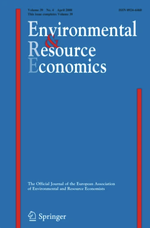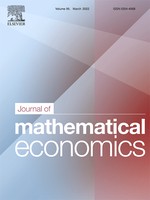I am an assistant professor (E&R lecturer) at the University of Exeter and at the Land, Economics, Environment and Policy Institute (LEEP). I work at the nexus of environmental, development and mathematical economics.
My current research studies the drivers of deforestation and the economic impact of endemic diseases, with a focus on Sub-Saharan Africa. I also study natural resource management under the threat of regime shifts and natural catastrophes. Additionally, I work on probability theory and stochastic analysis, with a focus on nonlinear diffusion processes. I am a classical pianist, performing internationally.
Interests
- Environmental economics
- Development economics
- Mathematical economics, stochastic analysis and control
Education
Research Scholar, 2021
University of Cambridge
PhD in Economics, 2019
The Graduate Institute of International and Development Studies, Geneva
MSc in Quantitative Finance, 2009
University of Padua
Soloist Diploma, 2014
Musik-Akademie Basel
MA, piano, 2011
Royal Academy of Music, London




